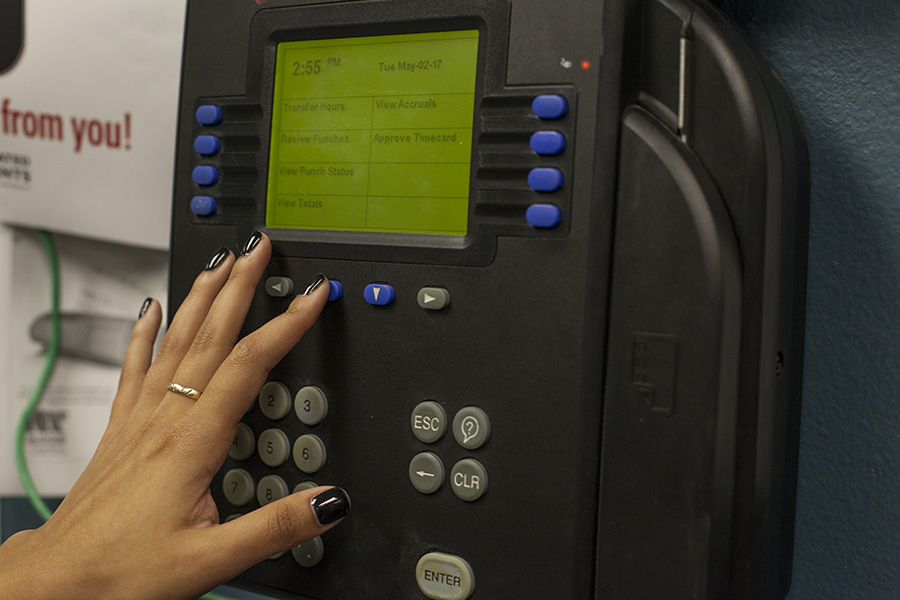The elevated costs of college tuition requires many students to work while going to school in order to pay for tuition, transportation, school supplies and living expenses.
Students have the option to work on or off-campus.
Child and family development freshman Diana Ramirez has worked off-campus nearly 20 hours per week since fall 2016.
She said her job last semester as a character performer at SeaWorld was easier than her current job as a barista at Teavana.
“I did a lot of guest interaction and group performance with my other co-workers,” she said. “It wasn’t that demanding, it just did require my full attention while I was there.”
Ramirez said she works on commission so she has to be active so that she can make her sales goal each day.
“Since I work around tea I have to know everything there is to know about it. It requires a lot of studying and reading in order to pass their tea proficiency test,” she said. “It stresses me out more than school does, honestly.”
Ramirez also said that her job affects her performance in classes because it takes away time that she has to study for exams.
“It just pushes my study time to the night before a test, and that really isn’t always effective when the exam covers so much material,” she said. “I usually still do okay in my classes, but I do sacrifice a lot of sleep during the week.”
Ramirez said though the job is demanding, her employers are flexible with her class schedule and she likes working off campus.
“The reason I like working is because I feel like I can get away from campus to focus on something (besides studying) and interact with people that don’t come to the school,” she said. “I also get paid a lot better outside than here. I feel like they’re more generous with their wages and understand that, as a student, I need more than just minimum (wage).”
On the contrary, kinesiology sophomore Jade DeGraffe said that she has worked a variety of off-campus jobs and would prefer to work on campus.
“Off-campus employers often don’t take into account the fact that you’re a student and they don’t care,” she said. “They only see you as a means of production and aren’t worried about any responsibilities that you have outside of your job.”
On-campus job opportunities offer flexible schedules, unique benefits and valuable work experience according to the Aztec Career Connection.
SDSU employs thousands of students annually in places like the Aztec Recreation Center, SDSU Love Library, Aztec Shops and Housing Administration.
Business Finance and Political Science sophomore Shivani Patel works on campus as a resident advisor.
Patel said that she works around 20 hours per week and her duties include working the front desk in her residence hall, mediating roommate conflicts, helping residents with their transition to college and working with supervisors and co-workers to plan programs for residents.
She said that she prefers working on campus because it allows more flexibility with classes and work hours.
“My job revolves around my class schedule and the only time I can’t have a class is during the weekly meetings,” she said. “Otherwise, school comes first and the job comes in at a close second.”
Patel said though being an RA requires a lot, the job does not affect the way she performs academically.
“The only way my job would affect my work in class is if something serious was going on in my building,” she said. “I am usually focused unless I am being faced with a dilemma within my community.”









